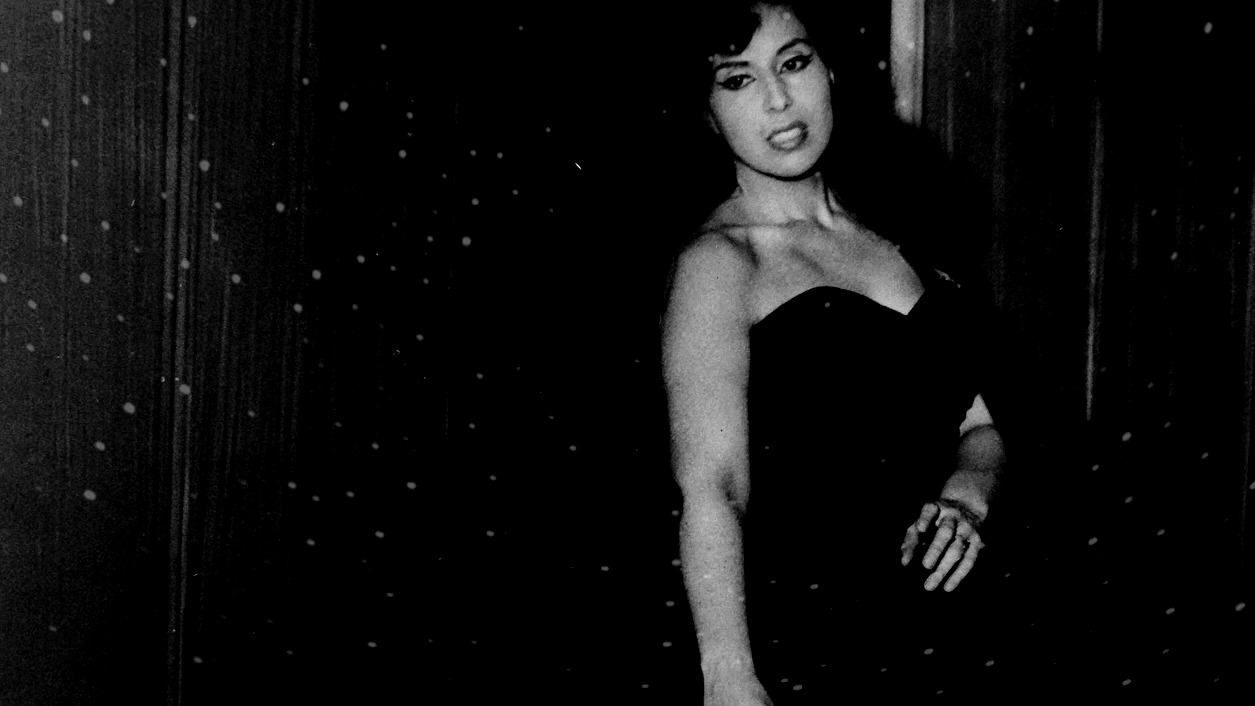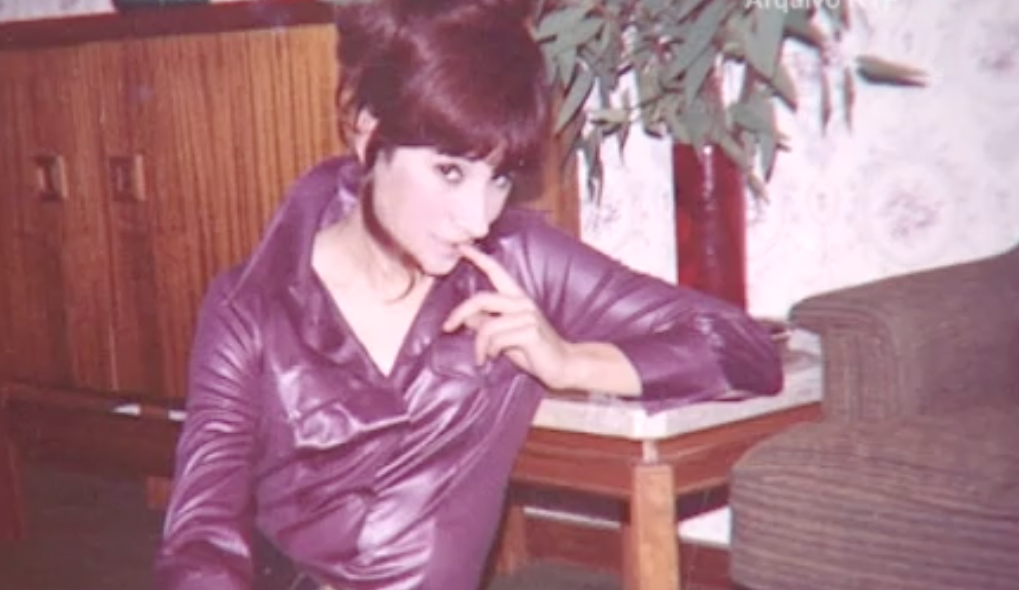CINEMA EXPANDIDO ESTRO /WATTS ( 2020)
Realização da vídeo performance para o espetáculo Estro / Watts de Gonçalo Amorim & Paulo Furtado.
Cinema expandido de Luísa Sequeira para a peça Estro/Watts
Criação e mistura de vídeo com imagens originais realizadas para o espetáculo, manipuladas em tempo real para a peça ESTRO/ WATTS um projeto de Gonçalo Amorim e Paulo Furtado.
Exibições:
- Teatro Municipal Rivoli
- Teatro Aveirense
- Convento de São Francisco
VÍDEO INSTALAÇÃO A.T.I.G.O.N.A ( 2020 )
Criação do projeto de vídeo instalação para a peça de teatro A.N.T.I.G.O.N.A do TEP, Teatro Experimental do Porto, com direção artística e encenação Gonçalo Amorim.
Estreou no Teatro Carlos Alberto na cidade do Porto.


QUEM É BÁRBARA VIRGÍNIA? / Who is Bárbara Virgínia?

2017 – Feature film ” Quem é Bárbara Virgínia? – Who is Bárbara Virginia? Is a a rescue of memories, a search in search of the filmmaker Bárbara Virgínia. Bárbara was the first portuguese filmmaker to make feature film and the only woman to make a film in the Portuguese dictatorship and was in the competition in the first edition of of Cannes in 1946. Filmed between Portugal and Brazil, in this intimate and poetic film we accompany Searching for Bárbara Virginia.
“Clearly a labour of love, Sequeira’s film reveals Virginia’s legacy”
“Why are people forgotten? How can you ensure your legacy will be remembered throughout time, and that your work meant something? These are the questions conjured by Luisa Sequeira’s intimate love letter to a pioneer of female filmmaking. WHO IS BARBARA VIRGINIA? aims to rediscover the life and work of the first Portuguese female director to make a feature film with sound, and the only one to do so during the fascist dictatorship of the era” Murray Ferguson at takeonecinema
Who Is Bárbara Virgínia?: Restoring the memory of Portuguese cinema
“Female empowerment is not a recent topic, but it has certainly gained higher visibility in recent years with women publicly demanding equal payment in companies and equal rights in society. The film sector, traditionally run by men, has been no exception. In fact, very few female directors have garnered as much attention as their male counterparts, and history tended to pay no mind to some of them. In the tiny world of Portuguese cinema, one particular case of obliviousness has recently stood out from the darkness. If you have never heard of Bárbara Virgínia, you are probably not alone – and that’s why the documentary Who Is Bárbara Virgínia? [+] by journalist and curator-turned-director Luísa Sequeira, which screened last weekend at Porto/Post/Doc, is an essential film to restore part of the memory of Portuguese cinema”
“Sequeira adopts an intimate tone in her film, shooting herself during her research trips, checking archives, and narrating her own curiosity and restlessness about Virgínia ” Vitor Pinto at Cineuropa
Festivais/ Festivals
Doclisboa 2017, Lisboa – Portugal
41.ª Mostra Int. de Cinema de São Paulo, São Paulo – Brasil
I Mostra Int. de Mulheres que falam Português, Rio de Janeiro – Brasil
Festival Int. de Cinema da Fronteira, Vila Santa Thereza – Brasil
XXIII Caminhos do Cinema Português, Coimbra – Portugal
Porto/Post/Doc: Film & Media Festival, Porto – Portugal
Cinemateca – Portugal ( 2018)
International Film Festival Rotterdam 2018 – Rotterdam
Frames – Portuguese Film Festival 2018 – Stockholm, Göteborg
Porto Femme International Film Festival
Portuguese Cinema Days in Berlin
Imagens do Real Imaginado
Festival Caminhos Cinema Português “Quem é Bárbara Virgínia?”, de Luísa Sequeira (Melhor documentário Universidade de Coimbra)- Award for best documentary.
Porto Femme International Film Festival – Melhor documentário português. Award for best documentary.
OS CRAVOS E A ROCHA ( 2015)

[During the Carnation Revolution Glauber Rocha was in Portugal and joined a collective film, As Armas e o Povo.]
“Os Cravos e a Rocha” (It was screened in over 20 festivals, among them: Premier Brazil at the Rio Festival, Luso Brasileiro, Indielisboa, São Paulo Short Film Festival, NY Portuguese Short Film Festival, Cortex, etc)
LA LUNA ( 2016)

2016- Experimental short film “La Luna”
International Film and Video Festival Bideodromo 2016
Family Film Project 2016
Lisbon International Film Festival
International Festival SIGNES DE NUIT, Paris
Galeria Oitavo
1st BCK Film Symposium em Antenas, integrada no programa cinema no Cinemax 2018
Exploding Cinema at The Cinema Museum ( London) 2018
MEMÓRIA, SUBSTANTIVO FEMININO ( 2016)

2016- Short film in Super 8 “Memória, substantivo feminino“
Honorable Mention of the Douro Film Festival – Porto 8mm International Film Festival
Family Film Project 2017
Engauge : Experimental Film Festival em Seattle.
MULHERES NO PALCO ( 2006)
Documentário ‘Mulheres no Palco’ ( 2006) realização de Luísa Sequeira

Documentário Mulheres no Palco
Este documentário acompanha a encenação da peça de teatro, “A mais velha profissão do mundo”, da dramaturga norte-americana Paula Vogel, uma peça encenada por Fernanda Lapa para o Teatro Nacional D. Maria II. Esta peça juntou pela primeira vez no palco cinco grandes atrizes portuguesas: Lia Gama, Maria José, Glória de Matos, Fernanda Montenegro e Lurdes Norberto. Em 2005, a encenadora Fernanda Lapa venceu o Globo de Ouro para melhor espetáculo com “A Mais Velha Profissão”. Em “ Mulheres no Palco”, ouvimos a opinião da encenadora Fernanda Lapa e das atrizes sobre a vida, o teatro e o tema que as uniu em palco.
Ano : 2006
Realização: Luísa Sequeira
Autoria: Luísa Pinto
Com: Fernanda Lapa, Lia Gama, Maria José, Glória de Matos, Fernanda Montenegro e Lurdes Norberto
Produção : RTP
PORTO SEM NÓ ( PROGRAMA DE CINEMA )
SÉRIE DE CINEMA EXPERIMENTAL MOTEL SAMA ( CANAL BRASIL)
FOTOGRAMA – PROGRAMA DE CINEMA ( RTP)

[Fonte: IndieLisboa]